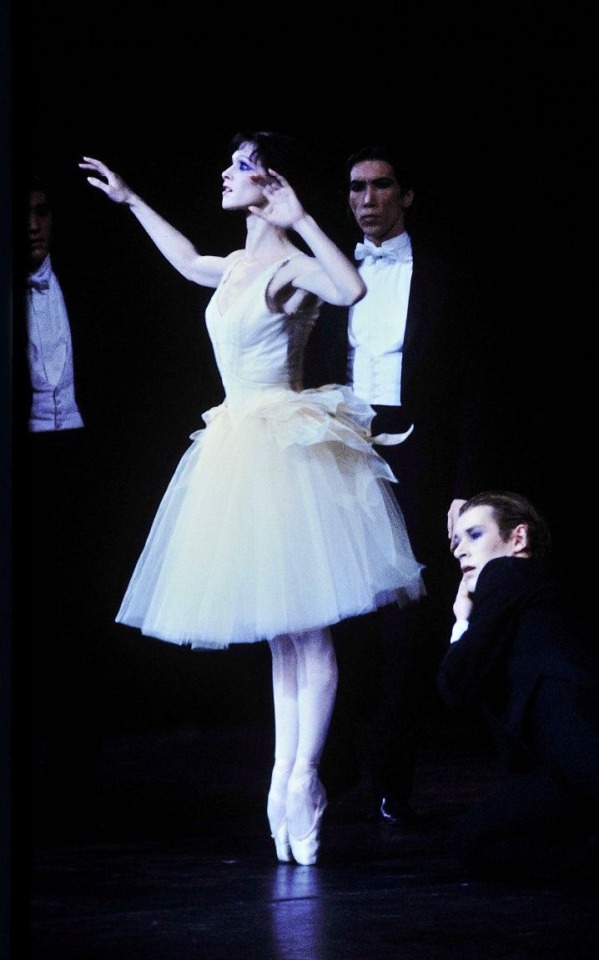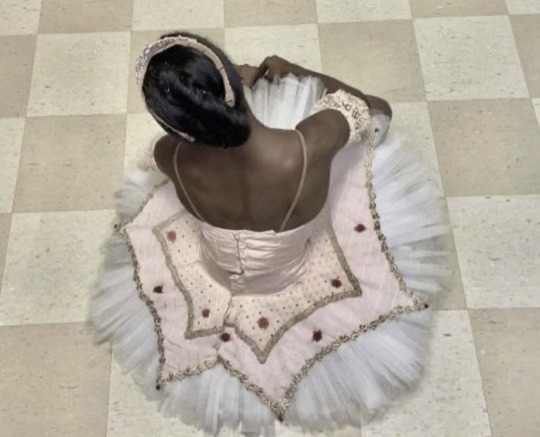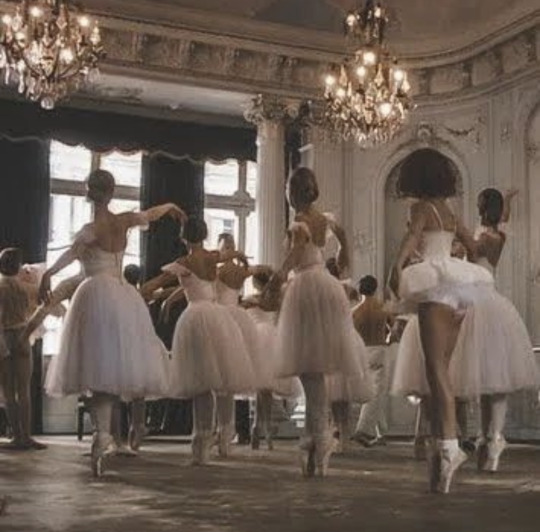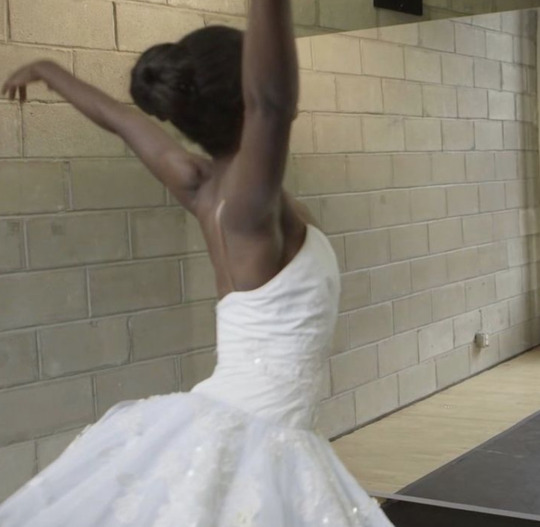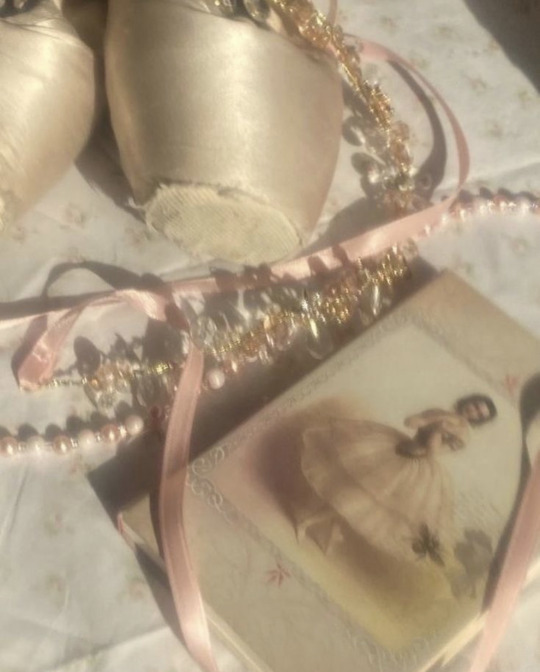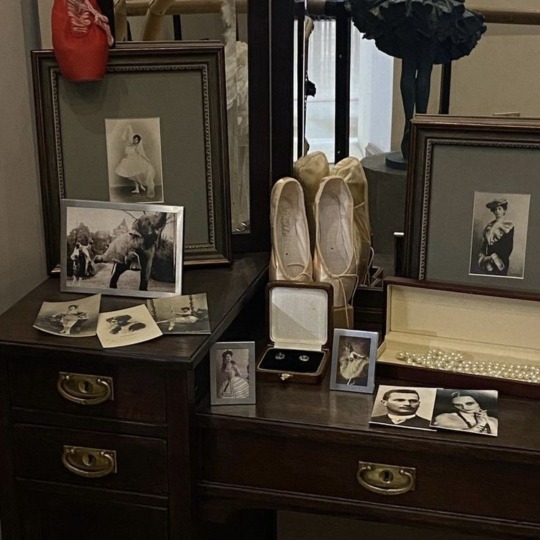Text
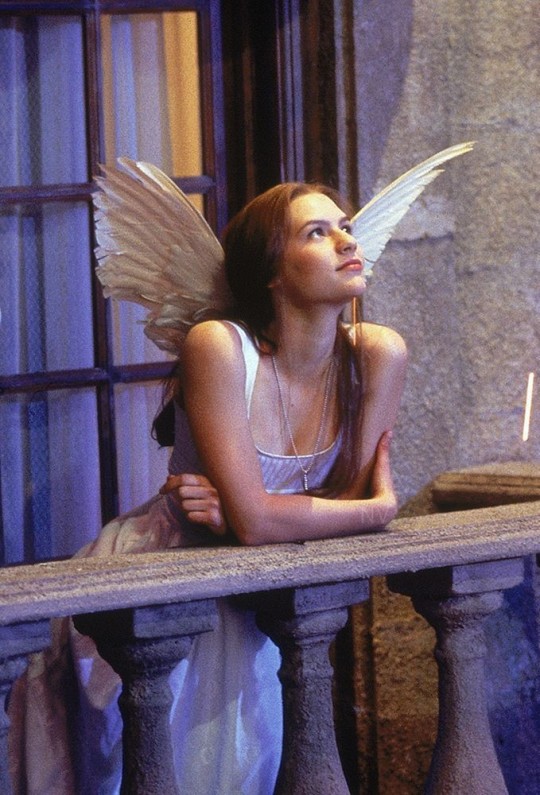

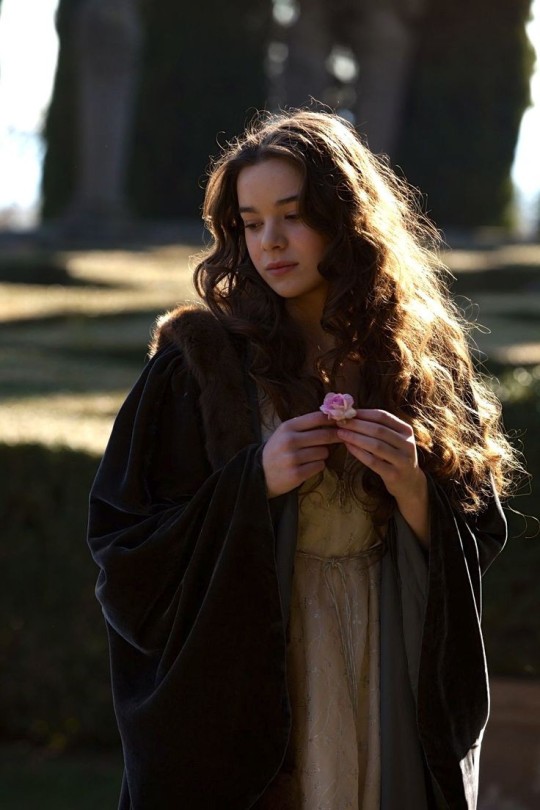
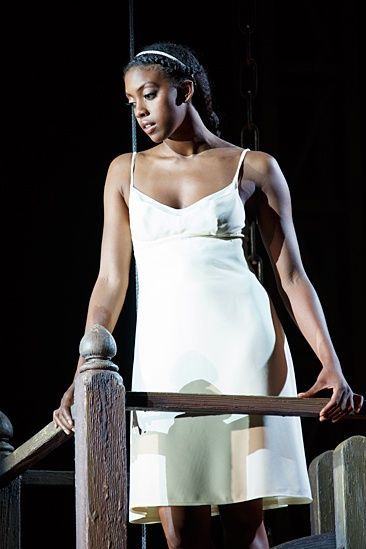
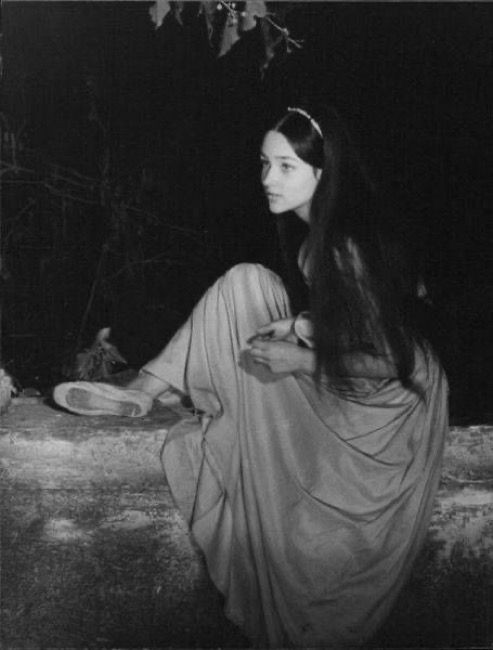
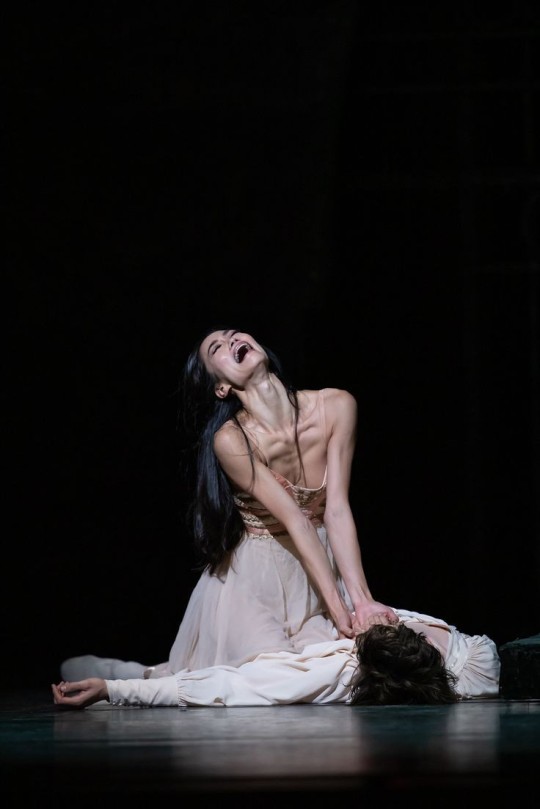
A collection of Juliets
1. Claire Danes
2. Nailea Devora
3. Hailee Steinfeld
4. Condola Rashad
5. Olivia Hussey
6. Fumi Kaneko
4K notes
·
View notes
Text
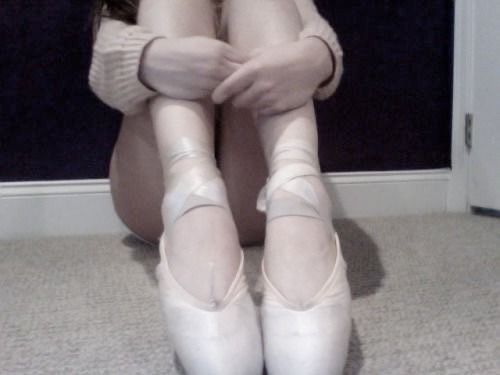
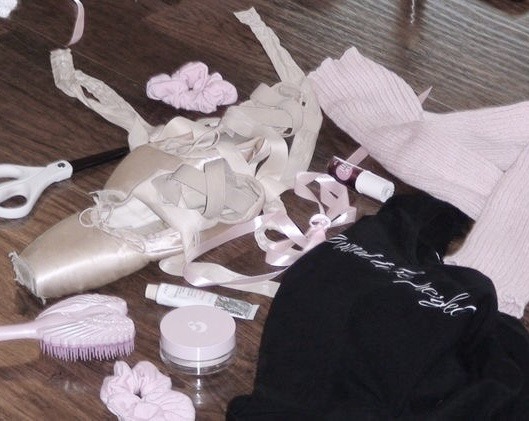


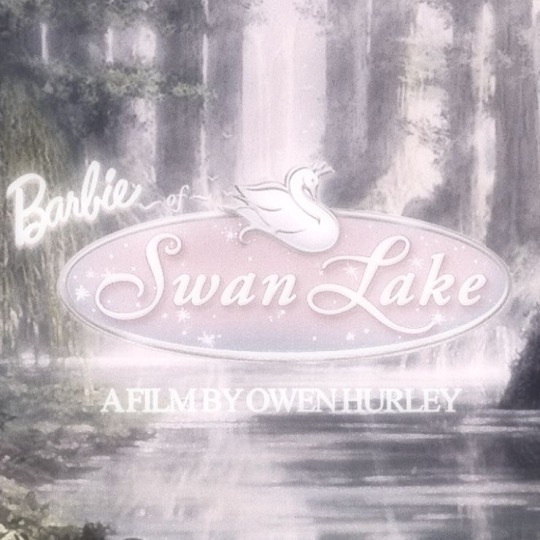

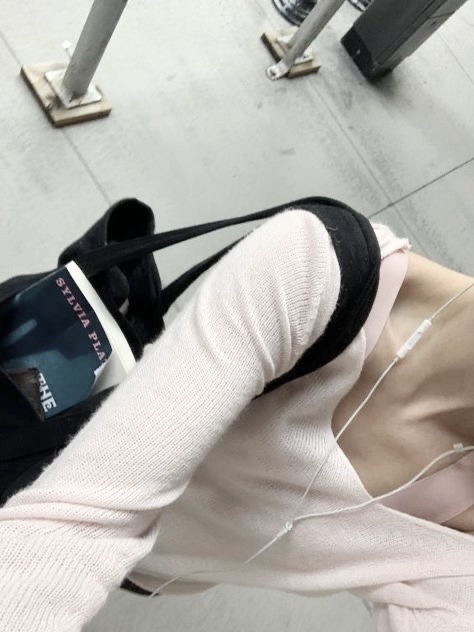
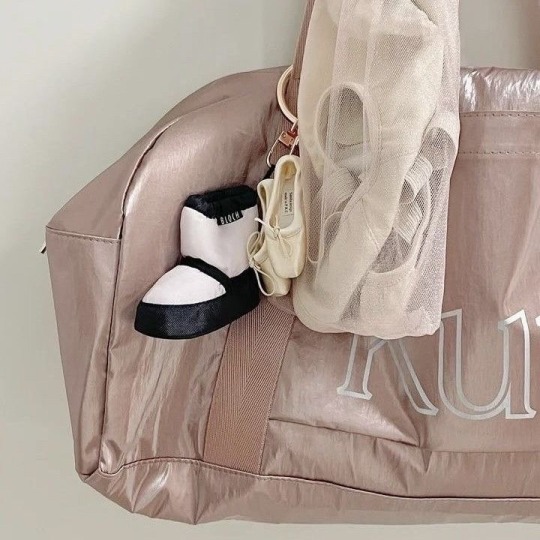

dance me all around the room
spin me like a ballerina, super high
˚ ʚ ୨🩰୧ ɞ ˚
84 notes
·
View notes
Text
Those books that make you fall in love with reading after a HUGE slump
27 notes
·
View notes
Text
Another ✨️WORK IN PROGRESS✨️ cause I can't bring myself to finish anything lately

It looks better in my head and I WILL make it look better
I just have to gather some stamina...
187 notes
·
View notes
Text
10 Times Camilla and Henry Were Obviously
a Couple Before (anyone knew) They Were a Couple
Page numbers are from the April 2004 Vintage Contemporaries paperback published in the U.S.
10. There was a brief silence after she had finished; rather to my surprise, Henry winked solemnly at her from across the table. (p. 38)
9. “Henry, I wish you’d put me down. I’m too heavy for you.”
He smiled at her. There was a slight chip in one of his front teeth I’d never noticed before; it gave his smile a very engaging quality. “You’re light as a feather, he said.” (p. 98)
8. “What do you and Henry need a secret code for?”
“It’s not a secret.”
“Then why didn’t you tell me?”
“Charles, don’t be such a baby.” (p. 248)
7. Henry took the box from her and struck one himself; it flared up high and strong and she leaned close to it, one hand cupped around the flame and the other resting upon his wrist. (p. 309)
Note: This is such a favorite of mine because it seems like such a tiny thing, but there’s a section break right after this—so we’re meant to focus on Camilla’s hand resting on Henry’s wrist, and on the act of lighting someone’s cigarette for them: an action that’s totally casual and yet remarkably intimate.
6. Henry was distracted. The FBI had paid him another visit the night before—what they wanted he didn’t say—and he was talking on and on in a low voice about Schliemann’s Ilios…
…She hadn’t been there when I brought Charles home, and she looked like she’d just got out of bed herself; tousle-haired, no lipstick, wearing a gray wool sweater that came down past her wrists. (p. 369)
Note: We find out later from Charles that Henry was so distraught that morning because he was “almost sure he was going to be arrested.” Charles also says that Camilla had no idea that Henry (and Charles himself) were in so much trouble. I very much doubt that: It’s almost certain that Camilla was with Henry all night. Was this the first time they slept together? I don’t know, but just two pages later, we get this:
5. “Leave me alone,” he muttered, seizing Camilla by the wrist and trying to push through to the door. (p. 371)
Note: There’s only one other time Henry has been physically protective of Camilla, and that was at the lake when she cut her foot—a scene that Tartt obviously considered important enough to spend nearly four pages on. But is Henry shielding Camilla here, or reaching out to her as a lifeline? Either way, it’s a visible continuation of whatever went on between the two of them the night before.
4. “…I’ve heard her talking on the phone.”
“And saying what?”
“Oh nothing, but like two or three in the morning, whispering, you’ve got to wonder.” (p. 399)
3. “Do you suppose Henry’s all right?”
“Oh, he’s fine,” said Camilla, busy with knife and fork.
“How do you know?”
She paused, the fork in mid-air; her glance was like a light turned suddenly into my face. “Because I just saw him.”
“Where?”
“At his apartment. This morning.” (p. 425-426)
2. The twins weren’t like Henry; if they were home, they would generally answer the phone. But no one did answer, I dialed again and glanced at my watch. Eleven-twenty. I couldn’t think where Camilla would be that time of night. (p. 428)
1. …it wasn’t that though, but something else, indefinable, that somehow had changed since I had seen him last…
Henry glanced up. “Salve, amice,” he said, and a subtle animation flickered in his rigid features, usually so locked up, and distant…
“You look well,” I said to him, and he did. (p. 429)
372 notes
·
View notes
Text

put down ‘the secret history’ two weeks ago to make some character designs and here I am posting the final product at 4am
115 notes
·
View notes
Text
I’ve seen a few reviews of The Secret History tonight and they all fell in the ‘the first half was good but once the mystery was revealed it meandered and didn’t go anywhere’ camp. Which just shows that most people who read The Secret History haven’t encountered Greek Tragedy before.
Unlike familiar heroes journeys or mystery novels of the 20th century, greek tragedies were typically told in two parts - the violent or tragic act shown to the audience, followed by the characters responsible meeting their fates. TSH is a modern retelling of a Greek Tragedy - Richard is the chorus witnessing the downfall of the players for what they did to Bunny, and for all the choices they made along the way.
A tragedy is never about the whodunnit, or the why, tragedies act as a warning of what will happen to you should you follow the same path. It’s why it is so fucking brilliant; it’s satire of everything wrong with academia and fiscal elitism told through the vessel of an academic pursuit typically reserved for those who are a part of that elitist class.
I think you need a basic understanding of Greek Tragedy to realise just how brilliant it is. Thank god for Greek Theatre in second year uni - a semester of Antigone didn’t have much of an impact then, but it certainly helped me appreciate a fantastic novel.
58 notes
·
View notes
Text
Funeral March
Hello The Secret History fanbase… I offer you my first TSH fanfiction. this is more an exercise in character than anything, I want to be able to write them all accurately before doing much else of substance — and I really just wanted to write the Greek class being the weirdos that they are. go easy on me but I hope this is at the very least enjoyable.
not canon compliant, Bunny is alive and they’re all friends.
Word Count: 3k
Read on AO3 or below the cut! ☕️ ☆ 🕯️
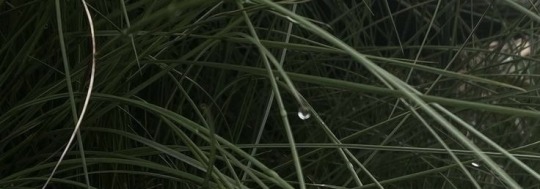
Early morning. Tall blades of unkempt grass glimmered with the shine of dew drops; wildflowers sprouted in lush patches; and damp stepping stones littered the yard. The tang of wet, damp earth lingered heavy and humid; the air thick but clean. The snow had melted in the past week, and the Greek class was enjoying early spring at Francis’ country home. The sun had barely risen above the horizon to fill the yard with light when the smell of something sickly, putrid like an overripe fruit, became abundant.
“Oh, no!” Francis cried, stopping in his tracks and glancing towards the ground. He was in shirtsleeves, and his pants were rolled up to his knees. His pale feet were bare and wet with dew, disrupting the grass where he stood, and drops of water were rolling off him and catching on the hair on his legs. Charles stood next to him, peering down to see what had gotten Francis so upset.
“Look at that, Charles,” he said, pointing to a small clump of feathers and red. “Poor thing.”
Along with rain showers, vibrant greenery, and blooms of flowers, Vermont spring brought songbirds back from a winter away. Francis’ countryside property had found itself full of small birds, singing and chirping away at all hours (starting early, a bit before sunrise, tending to wake Bunny, who decided to wake everyone else in his tired annoyance). Dashes of blue jays and sparrows and warblers in the trees, daring near the ground only in search of food.
“Oh, what a shame! What are we to do?”
“Leave it,” Charles said dismissively. “Why should we have to do anything at all?”
“Charles, look at it.”
The blond crouched down in the grass, blades thick and full, to examine the mass of feathers and, upon closer inspection, gore.
A round, cream-colored bird lay with its wings spread in its full span. Its torn open chest painted the feathers on its small body close to the shade of a cardinal — red; visceral and bloody, vermillion, wine, raw meat. Sternum to ribcage cracked open like a pomegranate, seeds torn out, thrown back on the ground to let it sink into the earth. Its neck, Charles noticed, was turned at an unnatural angle, a bite mark deep in the flesh of its throat. Viscous, sticky liquid surrounded the small corpse, still and fresh. The smell was something awful, sickening but sweet, iron. It made Charles’ stomach clench the closer he got.
Reaching for a stick, Charles ignored Francis’ wailing (‘Oh, no, Charles, don’t,’ ‘I can’t look,’ ‘Oh, forget about it,’ something in French) and poked at the bird from a distance, turning it over and around. Getting a better look at it, the bird was a dove. A white mourning dove, a dove whose coos had likely woken Bunny up in the morning.
Francis’ house had not only been a springtime retreat for birds, but also for small but vicious predators – cats, raccoons, things with claws – one of which had seemingly gotten its paws and teeth sunk into the little dove nestled in a cushion of wet grass and stirred up dirt. Despite the still warm blood on its feathers, the unnatural tilt of its neck, and its exposed and empty abdomen, it looked peaceful, as all doves should be.
Francis’ eyebrows were scrunched together in a worried, pained sort of expression. “It was probably one of those damned cats you’ve been feeding. Look at this mess,” he said. “How horrible. Little thing only wanted some seeds–” tapping his foot – “I should’ve refilled the feeder yesterday. It must’ve been hungry. Oh, we’ve got to get rid of it. It’s dreadful.”
He pulled a pack of Marlboros from his breast pocket.
Unable to rip his eyes away from the mauled remains of the gentle creature, Charles stood in his grass-stained pants, propping himself up on one knee and pushing himself up. The stick, now bloody, was still clutched in his fist.
“The cat was hungry too.”
“What?” Francis asked, wiping his eye.
“The cat that got it,” Charles repeated. “It was hungry too.”
“Oh. Well, yes… but look at it. Brutalized. Careless. A horrible way to go.”
Charles paused, examining the bird again. The curve of its wings, body sprawled on the ground, looking as if it fell right from the sky and into the jowls of a predator with sharp, sharp teeth. Predestined. Inescapable. Fate.
In a way, it was beautiful. In its death, it had fallen into a patch of daisies, fresh and new, stained a color they would never naturally grow. Spring, the season of new life, of thriving, had brought death with it, too. For in the cycle of life and death, there is a profound sense of continuity, repeating and repeating and repeating. Die. Feed. Birth. And though brutal, ripped to shreds, the dove was peaceful – nothing could last forever; nothing that was mortal could ever escape the sharp teeth of death, be it a dove caught in the claws of a feral cat, or something more. In time, it would sink into earth, and feed the plants. Become a plant itself. Grow the seeds it was hungry for. Continuous. To live forever was to die, repeat the cycle. Become again.
However, as beautiful as it may have been, it was clearly distressing to Francis, who was now through with half a cigarette.
“It wasn’t malicious, Francis. Whatever it may have been,” Charles began, “it didn’t know any better. It was hungry. Everything needs to eat, that’s just how it goes. Besides –” he took Francis’ hand in his– “it’ll feed the flowers you like so much. Fertilizer?” He offered a smile.
“Right, sure, but… can we at least, God, I don’t know. Bury it? It’s horrible to look at, and it deserves a resting place, not so out in the open.” Francis said.
–
Across the yard, back at the house, Bunny sat in a porch chair, rosy-cheeked in the morning sun and coffee cup in hand, not paying the slightest attention to Francis and Charles in the grass. He had the radio set up on the table next to him, and he was listening to some awful war song (no one was quite sure if it was on a CD of his or if he had found a military radio station) that was far too loud for the hour. The large, French-style double doors were wide open, propped with books as door stops, and the sun sank into pools of light on the dark floorboards. In the house, Camilla and Henry walked back and forth across the foyer, visible every so often – carrying things, maybe books, Henry following Camilla’s lead.
Charles yelled something and waved his arms, trying to get anyone’s attention, unsuccessfully. He yelled again, this time Bunny’s name, holding up the bloodied stick and waving it around. The blood and the look on Francis’ face seemed to be alarming.
Bunny sprung up from his chair on the porch and ran through the yard — still in his robe and pajama bottoms — his mess of unruly blond hair not fully brushed and his not fully awake body tumbling over itself. He motioned for the others, and Camilla followed him, running towards the commotion with curlers in her hair; the gentle glow of the early morning sun made her face look soft but bare, and the gray of her eyes matched the sky so perfectly they nearly disappeared into the horizon. Shortly after, Richard appeared in shirtsleeves, struggling with pulling his shoes on, his eyes (and limbs) still heavy with sleep. And Henry followed behind them, fully dressed, like a disinterested father caring for his ill-behaved children, trying to control them before anyone had had any breakfast – they’re getting fussy, and he hadn’t had his coffee yet.
Bunny and Camilla came to a grinding halt, nearly crashing into each other upon Bunny’s sudden stop, Richard close behind them. Taking his time to reach the rest, Henry strolled through the grass, admiring the flowers. Charles and Francis pointed at the ground in unison.
They stood in a circle, heads together, mess of bird between their feet.
“Oh, that’s horrible.” Camilla was the first to speak. Her voice was layered with sleep, dark like tinted glass. “How on Earth could that have happened?”
It was, evidently, unnerving. Francis explained that he thought it was a cat, and Camilla cocked her head but was shushed by Charles before she could question him. Richard tried to hide his expression, one of disgust, but his nose scrunched and his eyebrows turned up. Bunny appeared similar, hiding it less; holding his nose closed with his fingers. Henry seemed indifferent, staring at the wounded bird with a lack of emotion.
“I want to bury it. I don’t like the way it looks,” Francis said.
“It’s just a bird,” Richard interjects. “What’s so wrong about it?”
“It’s eyes are open. It’s looking at me.”
“Sure is.” Bunny agreed. His voice was nasally, more than normal, nose plugged by pointer and middle. “Nasty sight. Damn awful smell, too. We should bury it, yes, yes. Hold it a proper funeral.”
“A funeral?” Camilla asked.
“Well, sure. Can’t just bury it all unceremoniously, can we? If we’re burying it, we might as well make a show of it. None of that Catholic bullshit. A real funeral! Like the Greeks! We’ll mourn, wear all black, pray to the gods. And Henry can dig the hole.”
–
Before Henry had much of a say about digging the grave, he stood in the garden, shovel in hand – expressionless, digging a dove-sized hole under a large willow tree next to the lake. He was wearing a black pin-stripe English suit, per Bunny’s request, and was narrowly avoiding getting dirt on his freshly polished Oxfords.
Bunny, Francis, Charles, and Richard had also found themselves in black suits – pieces of Charles’ suit oversized and borrowed from Bunny, as he doesn’t wear much black, nor did he plan on attending a funeral over the weekend. Francis wore his suit over a thin, starchy white shirt with turnback cuffs, his flame-colored hair slicked back and pince-nez glimmering in the (now afternoon) sun. Richard’s was ill-fitting, tight on the elbows, and had quite a few loose threads, adorned with a little golden lapel pin, shaped like the top of an Ionic-style column. They each held flowers in their hands, taken from the garden, that Camilla and Francis had tied together with strands of twine and ribbon. Charles still held the red-stained stick.
To Henry’s left stood Bunny, ordering him to dig the hole deeper and refusing to help. He had a black sheet thrown over his shoulder, a mockery of some sort of toga. Camilla stood to Henry’s right in a knee-length black dress with sheer black stockings underneath. She held the bird in her arms, wrapped in an old curtain Francis had found in the attic, laid in a small brown box, a makeshift coffin. Flowers lay around its body, and the smell of rot had been overtaken with the smell of a strong, floral perfume — stinging cherry blossom and bitter notes of bergamot. Bunny used his pocket square to wipe the sweat off of his, and then Henry’s, brow.
The smell of freshly turned dirt, woody and sweet. The air had warmed and cleared as the early morning turned to afternoon, the dew on the grass had evaporated, and the sun reflected off the lake in a blinding, star-like way. A dense, large willow shaded the funeral part; lush curtains of green cascading off of thin branches surrounded them and swayed with the breeze. The hushing sound of wind ruffling leaves was cut through by a funeral march – Chopin’s Piano Sonata No. 2, playing on the radio sitting on the tree roots. The glow of the sun hit the backs of Bunny, Henry, and Camilla, encasing the three of them in shadow haloed in gold, like a group of God’s finest angels, harbingers of death, or vengeful creatures sent by Hades up from the underworld. Henry mumbled something unintelligible to Camilla and held the shovel to his side. With that, Bunny began:
“Lady and gentlemen, we’re gathered here today in honor of this here dove. Tragically, our little friend was taken from us much too soon. Even though it woke me up this morning, no bird deserves a fate this bad, no, no. I’m sure it had a family, a bird-wife and chicks, you know, it’s spring and all. Real sad it ended up like this, all torn apart… Anyway, enough lamenting, right? This isn’t some pious, uptight mass, no, no Hail Mary’s. This is a celebration of this bird’s life! Sending it off.
“O Hermes, messenger of the gods, we ask you to guide the soul of our dearly departed dove safely across the river of Styx. Grant passage to the underworld of Hades, and let it find peace in the Elysian Fields, or wherever doves go,” Bunny said, talking with his hands and looking to the sky, like a preacher.
He rambled on, choosing his words carefully, about the underworld and the afterlife and how even sweet little birds had to meet their makers. When he finished, he wiped away a pretend tear, and Francis clapped, everyone else following his lead. Henry stifled a smile, covering his hand with his sleeve.
Thank yous were said to Bunny, and he bowed like he was a talk show host walking off stage – see you next time, folks! – and Camilla stepped forward in his place, box in hand, standing at the head of the grave plot and glancing down into the earth.
“Put him in, little lady.” Bunny motioned with his head towards her and put a hand on the small of her back.
She nodded, crouched, and lowered the box into the hole. The dove’s feathers ruffled in the breeze, its eyes still open and glossy as it and its box-casket were placed into the earth. Camilla placed it down gently, careful not to disturb it, as if she might’ve woken it up if she jostled it around. Henry offered his hand, and she took it in hers. He pulled her up, looking like he could’ve swept her up into a press lift as if they were dancing pas de deux. When she stood, her stockings and shoes were caked with damp dirt.
“Say goodbye, gentlemen. François, any final words?” Bunny asked.
Francis stepped to the head of the plot and threw his bouquet on top of the bird. “Au revoir, mon petit amie. Live forever, and let the flowers grow on top of this awful mess of dirt.”
Following his lead, Richard threw in his bundle of wildflowers, followed by Charles’, as well as the stick that had been stained with blood. Camilla unclasped her necklace – small, gold – and threw it in unceremoniously.
Henry, who had disappeared through the flower-tossing service, had returned, a bottle of wine in hand. He stood next to Camilla, his jaw clenched and his eyes glossy behind his glasses. With a pop, the cork, too, found itself in the shallow grave. The scent of grape, aged and spiced, poured into the earth, on top of the dove, and in the box. When the bottle neared being half empty, Francis ushered him to stop, and he did – taking quite a large swig of it himself – and handed it over.
The bottle was passed around between them as Henry shoveled the dirt back onto the grave. Bunny made reception small talk about “fond memories” of the dove while Camilla sat in the grass, tying pieces of twine around a bundle of sticks and flowers.
“Did we offer enough, do you think?” Charles asked, wrapping his arm around Francis’ shoulder.
“Sure,” said Francis, the bottle clenched in hand. “I’m just glad I can’t see it anymore.” He tilted the bottle up and finished it off.
“I’m sure Bunny’s speech was more than enough,” said Henry, calm and unbothered. “We gave it a thorough send-off. Returned it to the earth. The first dove to have a real funeral like this, I’d say. If the gods choose to care about a dove, this will be the one. Besides, I’m sure your flowers will look wonderful, Francis.” He threw another large pile of dirt into the grave, twirled the shovel in his fingers, and patted the earth down. “Factum est. Camilla, would you hand me that?”
He towered over her, encasing her in his shadow, and she handed over her stick-and-twine gravemarker. It was delicately made, but the details were clumsy: knots too big and in the wrong places, flowers lacking petals, an uneven bow in the front. Henry told her it was beautiful and stuck it into packed-down earth at the head of the burial site.
The six of them stood around the grave, now marked and permanent in Francis’ yard. The dirt was the color of freshly brewed tea, ornate and flowery, shaded by the dense overhang of weeping leaves and branches. In true fashion of spring, the sun had found itself behind a blanket of gray, surrounded by curls of hazy, dark shades, accompanied by the air marginally warming.
“You know,” Bunny began, slapping Francis on the back (startling him to a jump). “Every funeral I’ve ever been to, there’s been food after. A luncheon. And –” checking his watch – “It’s almost noon; that’s lunchtime. I’m starving, gentlemen.” Before any of them could answer, Bunny was already strolling towards the house – no, the driveway.
“I think it’s going to rain,” Richard cautioned, looking at the overcast gray of the clouds narrowly closing in.
“We better hurry up, then!” Bunny yelled as he took off towards the cars – Francis’, Henry’s. “Got to beat the weather, yes, yes!”
Glances were exchanged; the twins shrugged in unison, and took off after him. Gracefully, they moved their legs identically, and their feet kicked up dirt in unison. Charles yelled for Bunny to wait, and Camilla ran beside him, giggling. Francis took Richard by the hand, running along with him, and Henry followed behind the lot of them, patting his pockets to make sure he had his wallet.
19 notes
·
View notes


